-
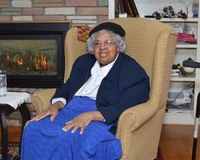 Interview with Esther Lee
Interview with Esther Lee
-
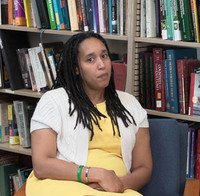 Interview with Robin Hemmons Alozie
Interview with Robin Hemmons Alozie Robin Hemmons Alozie shares that she cannot recall having been taught by a Black teacher. In high school, Mrs. Alozie was involved in band, play the clarinet, and basketball, volleyball, and stepping. After graduating from Liberty High School, she went to Temple University. She returned to Bethlehem and is one of two Black teachers currently working at Liberty High School.
-
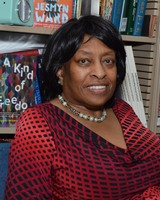 Interview with Wandalyn Enix
Interview with Wandalyn Enix Wandalyn Enix shares that her grandfather first came to Bethlehem in the early 1920s from South Carolina, and later sent for his wife Essie and their two children, who are her father and aunt. As a child, her parents did not take their children back to the South because of the horrific incidents, such as lynching. Ms. Enix shares that only ten Black students were in her class. She and her siblings were involved in sports and the band while at Liberty High School. She graduated from Howard Univerity. She was hired at Broughal in 1969.
-
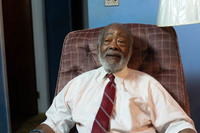 Interview with Clyde Bosket
Interview with Clyde Bosket Clyde Bosket shares that although he did not live in Bethlehem, he had three connections to Bethlehem. First, he worked at Bethlehem Steel. Second, he owned a barbershop in the city, and third, he was the Grand Master at the Wyoming Lodge #135. At the Steel, he started as a laborer, then worked as an inspector, and finally as a machine operator. He trained at the Tri-City Barber School. As a business owner, he taught others in cosmetology and catered to female clientele.
-
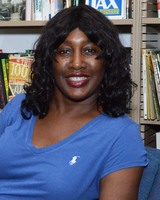 Interview with Deborah Eggleston
Interview with Deborah Eggleston Deborah Eggleston shares that she grew up in the Clearfield projects on the Southside of Bethlehem. Even though her parents were strict, she was allowed to venture out. She grew up in the church, St. Paul Baptist, and was in the choir and served as an usher.
-
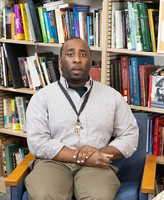 Interview with Winston Alozie
Interview with Winston Alozie Winston Alozie shares that he moved to Bethlehem in 2001 with his parents from Louisiana. When they first arrived, they lived in the Southside of Bethlehem. He started 8th grade at Broughal Middle School. Depending on where you lived on the Southside, you either went to Freedom or Liberty. He noted that he was put in a lower math class level because he went to Broughal. However, his teacher realized his abilities, and he was eventually moved to a more advanced class.
-
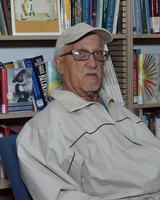 Interview with Herbert Bradley
Interview with Herbert Bradley Herbert Bradley shares that his great-grandfather, Hiram Bradley, was the first Black person to arrive in Bethlehem in 1860, from Virginia. He was an indentured servant to Tinsley Getter, a white man. Later on, he married Emma Welch, a white woman, and worked for Bethlehem Steel. Herbert Bradley's father's name is Herbert Frank Bradley and worked at Bethlehem Steel as well as the Bethlehem Hotel. His mother's name is Leila, from Easton, Pa.
-
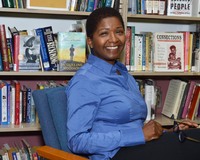 Interview with Sharon King
Interview with Sharon King Sharon King shares that her mother, Vivian Butts, was the first Black female police officer at the Bethlehem Police Department for twenty-five years and retired as a Sergeant. Her father, Raymond Butts was a construction worker and worked briefly at Bethlehem Steel. Mrs. King recalls her father having a garden with fruits and vegetables, and looking back, she sees it as a privilege to eat fresh food from the vines and trees. After she graduated from Liberty High School and went off to Norfolk State University, she did not return because jobs were difficult to get, and culture was lacking.
-
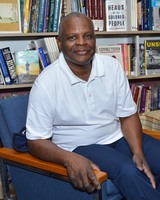 Interview with Donald Williams
Interview with Donald Williams Donald Williams shares that he relocated to Bethlehem at the age of 18 in 1968 from Elizabeth City, North Carolina, and lived with his sister, Vivian Butts, when he first arrived. They all came to Bethlehem for a better life. He turned down a job from Bethlehem Steel because he didn't want to work as a laborer. Williams was a caddy at the golf course in Elizabeth City and eventually learned and taught golf.
-
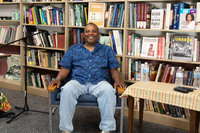 Interview with Matthew Williams
Interview with Matthew Williams Matthew Williams shares that his parents moved from the South. His father worked as a carpenter, and at Bethlehem Steel. He notes that not many Hispanics lived in Bethlehem at the time of his youth. The only minorities that he can recall in his middle school were his brothers, sisters, and cousins. Mr. Williams grew up in a family of golfers and he too learned to play. He was also an avid chess player at Freedom High School and competed in the Lehigh Valley East Penn Conference.
-
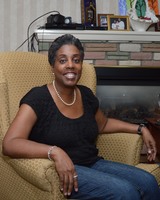 Interview with Taaz Tarboro Crossley
Interview with Taaz Tarboro Crossley Taaz Tarboro Crossley discusses that she never felt that race or racism were issues for her until the television series Roots came out in 1977. She recalls getting car rides from Whites when going to the Southside of Bethlehem. Mrs. Crossley felt safe because the community looked out for each other. She belonged to the Brotherhood Club at Liberty High School and participated in the choir at St. Paul Church. After completing her education at Howard University, she did not return to Bethlehem due to a lack of job opportunities and cultural life.
-
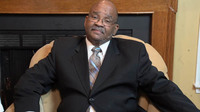 Interview with Ulysses Harold Levy
Interview with Ulysses Harold Levy Ulysses Harold Levy shares that he moved to Bethlehem having met his wife Sharon Levy at the Pennsylvania Black Conference on Higher Education in Philadelphia. His wife and the Grace Deliverance church were the driving forces making Bethlehem his home. Mr. Levy discusses that raising his daughter was difficult because of the lack of diversity.
-
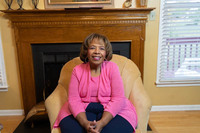 Interview with Sharon Gavin-Levy
Interview with Sharon Gavin-Levy Sharon Gavin-Levy shares that she came to Bethlehem in November of 1976. She moved from Long Island, New York because of a job opportunity in education at Northampton County Community College. When she first arrived in Bethlehem, she had a difficult time acclimating into the Black community and didn't feel welcomed. Therefore, she commuted to work from Long Island for four years. However, she eventually settled into life in the community, and while at NCCC she started a program called Project Aware. It provided educational opportunities for students of color that were not academically prepared.
-
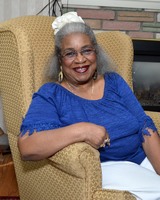 Interview with Vivian Hungerford
Interview with Vivian Hungerford Vivian Hungerford discusses the strong impact that her family made in their community. Her mother, Louise Lillian (maiden name, Edmondson) was a stay-at-home mom and the disciplinarian. Her father Bert Tarboro was well known for his involvement in sports. He started a Black baseball team called the Giant Baseball league and later integrated it. Baseball greats Jackie Robinson and Dan Newcome were guests at a banquet that was organized by Mr. Tarboro. Her father also worked for Bethlehem Steel as a laborer for forty-four years.
-
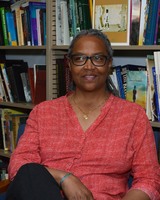 Interview with Lillian June Robinson
Interview with Lillian June Robinson Lillian June Robinson shares that her family moved to Bethlehem in the 1920s. Her mother Margarite Johnson Robinson was born and raised in Bethlehem. Her mother worked at Lehigh University Club. Ms. Robinson discusses that since blacks were not allowed to swim in the public pools, the canal was the next best thing; her uncle Edward Johnson drowned in Bethlehem's canal.
-
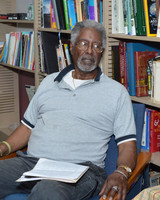 Interview with Chappell Floyd
Interview with Chappell Floyd Chappell Floyd shares that be bought his first house at age twenty-six in Bethlehem Township. He touches on his treatment and experience being the first African American to be hired in the corporate office.
-
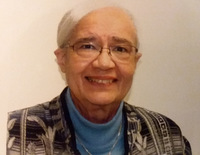 Interview with Barbara Hemmons
Interview with Barbara Hemmons Barbara Hemmons shares that her family moved to Bethlehem in the 1970s because the Lehigh Valley area was recruiting Black professionals. Many left after five years and a few stayed. A few black businesses were around but did not last for very long. She speaks about how the church played an integral role in forming who they were as a community. She discusses that her husband was the first African American to pass the Bar exam in Pennsylvania.
-
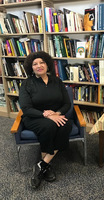 Interview with Robin Sheleene Stanley
Interview with Robin Sheleene Stanley Robin Sheleene Stanley shares that her grandparents moved to Bethlehem from Virginia in the 1930s. Her grandfather worked at the Bethlehem Steel. She also worked at Bethlehem Steel, AT&T and Lehigh County Community Corrections Center, where she was promoted to Lieutenant - the first African American to be hired in that position. She speaks about the diversity of the South Terrace housing project, and discusses the St. Paul Church as a staple of the community.
 Interview with Esther Lee
Interview with Esther Lee  Interview with Robin Hemmons Alozie Robin Hemmons Alozie shares that she cannot recall having been taught by a Black teacher. In high school, Mrs. Alozie was involved in band, play the clarinet, and basketball, volleyball, and stepping. After graduating from Liberty High School, she went to Temple University. She returned to Bethlehem and is one of two Black teachers currently working at Liberty High School.
Interview with Robin Hemmons Alozie Robin Hemmons Alozie shares that she cannot recall having been taught by a Black teacher. In high school, Mrs. Alozie was involved in band, play the clarinet, and basketball, volleyball, and stepping. After graduating from Liberty High School, she went to Temple University. She returned to Bethlehem and is one of two Black teachers currently working at Liberty High School. Interview with Wandalyn Enix Wandalyn Enix shares that her grandfather first came to Bethlehem in the early 1920s from South Carolina, and later sent for his wife Essie and their two children, who are her father and aunt. As a child, her parents did not take their children back to the South because of the horrific incidents, such as lynching. Ms. Enix shares that only ten Black students were in her class. She and her siblings were involved in sports and the band while at Liberty High School. She graduated from Howard Univerity. She was hired at Broughal in 1969.
Interview with Wandalyn Enix Wandalyn Enix shares that her grandfather first came to Bethlehem in the early 1920s from South Carolina, and later sent for his wife Essie and their two children, who are her father and aunt. As a child, her parents did not take their children back to the South because of the horrific incidents, such as lynching. Ms. Enix shares that only ten Black students were in her class. She and her siblings were involved in sports and the band while at Liberty High School. She graduated from Howard Univerity. She was hired at Broughal in 1969. Interview with Clyde Bosket Clyde Bosket shares that although he did not live in Bethlehem, he had three connections to Bethlehem. First, he worked at Bethlehem Steel. Second, he owned a barbershop in the city, and third, he was the Grand Master at the Wyoming Lodge #135. At the Steel, he started as a laborer, then worked as an inspector, and finally as a machine operator. He trained at the Tri-City Barber School. As a business owner, he taught others in cosmetology and catered to female clientele.
Interview with Clyde Bosket Clyde Bosket shares that although he did not live in Bethlehem, he had three connections to Bethlehem. First, he worked at Bethlehem Steel. Second, he owned a barbershop in the city, and third, he was the Grand Master at the Wyoming Lodge #135. At the Steel, he started as a laborer, then worked as an inspector, and finally as a machine operator. He trained at the Tri-City Barber School. As a business owner, he taught others in cosmetology and catered to female clientele. Interview with Deborah Eggleston Deborah Eggleston shares that she grew up in the Clearfield projects on the Southside of Bethlehem. Even though her parents were strict, she was allowed to venture out. She grew up in the church, St. Paul Baptist, and was in the choir and served as an usher.
Interview with Deborah Eggleston Deborah Eggleston shares that she grew up in the Clearfield projects on the Southside of Bethlehem. Even though her parents were strict, she was allowed to venture out. She grew up in the church, St. Paul Baptist, and was in the choir and served as an usher. Interview with Winston Alozie Winston Alozie shares that he moved to Bethlehem in 2001 with his parents from Louisiana. When they first arrived, they lived in the Southside of Bethlehem. He started 8th grade at Broughal Middle School. Depending on where you lived on the Southside, you either went to Freedom or Liberty. He noted that he was put in a lower math class level because he went to Broughal. However, his teacher realized his abilities, and he was eventually moved to a more advanced class.
Interview with Winston Alozie Winston Alozie shares that he moved to Bethlehem in 2001 with his parents from Louisiana. When they first arrived, they lived in the Southside of Bethlehem. He started 8th grade at Broughal Middle School. Depending on where you lived on the Southside, you either went to Freedom or Liberty. He noted that he was put in a lower math class level because he went to Broughal. However, his teacher realized his abilities, and he was eventually moved to a more advanced class. Interview with Herbert Bradley Herbert Bradley shares that his great-grandfather, Hiram Bradley, was the first Black person to arrive in Bethlehem in 1860, from Virginia. He was an indentured servant to Tinsley Getter, a white man. Later on, he married Emma Welch, a white woman, and worked for Bethlehem Steel. Herbert Bradley's father's name is Herbert Frank Bradley and worked at Bethlehem Steel as well as the Bethlehem Hotel. His mother's name is Leila, from Easton, Pa.
Interview with Herbert Bradley Herbert Bradley shares that his great-grandfather, Hiram Bradley, was the first Black person to arrive in Bethlehem in 1860, from Virginia. He was an indentured servant to Tinsley Getter, a white man. Later on, he married Emma Welch, a white woman, and worked for Bethlehem Steel. Herbert Bradley's father's name is Herbert Frank Bradley and worked at Bethlehem Steel as well as the Bethlehem Hotel. His mother's name is Leila, from Easton, Pa. Interview with Sharon King Sharon King shares that her mother, Vivian Butts, was the first Black female police officer at the Bethlehem Police Department for twenty-five years and retired as a Sergeant. Her father, Raymond Butts was a construction worker and worked briefly at Bethlehem Steel. Mrs. King recalls her father having a garden with fruits and vegetables, and looking back, she sees it as a privilege to eat fresh food from the vines and trees. After she graduated from Liberty High School and went off to Norfolk State University, she did not return because jobs were difficult to get, and culture was lacking.
Interview with Sharon King Sharon King shares that her mother, Vivian Butts, was the first Black female police officer at the Bethlehem Police Department for twenty-five years and retired as a Sergeant. Her father, Raymond Butts was a construction worker and worked briefly at Bethlehem Steel. Mrs. King recalls her father having a garden with fruits and vegetables, and looking back, she sees it as a privilege to eat fresh food from the vines and trees. After she graduated from Liberty High School and went off to Norfolk State University, she did not return because jobs were difficult to get, and culture was lacking. Interview with Donald Williams Donald Williams shares that he relocated to Bethlehem at the age of 18 in 1968 from Elizabeth City, North Carolina, and lived with his sister, Vivian Butts, when he first arrived. They all came to Bethlehem for a better life. He turned down a job from Bethlehem Steel because he didn't want to work as a laborer. Williams was a caddy at the golf course in Elizabeth City and eventually learned and taught golf.
Interview with Donald Williams Donald Williams shares that he relocated to Bethlehem at the age of 18 in 1968 from Elizabeth City, North Carolina, and lived with his sister, Vivian Butts, when he first arrived. They all came to Bethlehem for a better life. He turned down a job from Bethlehem Steel because he didn't want to work as a laborer. Williams was a caddy at the golf course in Elizabeth City and eventually learned and taught golf. Interview with Matthew Williams Matthew Williams shares that his parents moved from the South. His father worked as a carpenter, and at Bethlehem Steel. He notes that not many Hispanics lived in Bethlehem at the time of his youth. The only minorities that he can recall in his middle school were his brothers, sisters, and cousins. Mr. Williams grew up in a family of golfers and he too learned to play. He was also an avid chess player at Freedom High School and competed in the Lehigh Valley East Penn Conference.
Interview with Matthew Williams Matthew Williams shares that his parents moved from the South. His father worked as a carpenter, and at Bethlehem Steel. He notes that not many Hispanics lived in Bethlehem at the time of his youth. The only minorities that he can recall in his middle school were his brothers, sisters, and cousins. Mr. Williams grew up in a family of golfers and he too learned to play. He was also an avid chess player at Freedom High School and competed in the Lehigh Valley East Penn Conference. Interview with Taaz Tarboro Crossley Taaz Tarboro Crossley discusses that she never felt that race or racism were issues for her until the television series Roots came out in 1977. She recalls getting car rides from Whites when going to the Southside of Bethlehem. Mrs. Crossley felt safe because the community looked out for each other. She belonged to the Brotherhood Club at Liberty High School and participated in the choir at St. Paul Church. After completing her education at Howard University, she did not return to Bethlehem due to a lack of job opportunities and cultural life.
Interview with Taaz Tarboro Crossley Taaz Tarboro Crossley discusses that she never felt that race or racism were issues for her until the television series Roots came out in 1977. She recalls getting car rides from Whites when going to the Southside of Bethlehem. Mrs. Crossley felt safe because the community looked out for each other. She belonged to the Brotherhood Club at Liberty High School and participated in the choir at St. Paul Church. After completing her education at Howard University, she did not return to Bethlehem due to a lack of job opportunities and cultural life. Interview with Ulysses Harold Levy Ulysses Harold Levy shares that he moved to Bethlehem having met his wife Sharon Levy at the Pennsylvania Black Conference on Higher Education in Philadelphia. His wife and the Grace Deliverance church were the driving forces making Bethlehem his home. Mr. Levy discusses that raising his daughter was difficult because of the lack of diversity.
Interview with Ulysses Harold Levy Ulysses Harold Levy shares that he moved to Bethlehem having met his wife Sharon Levy at the Pennsylvania Black Conference on Higher Education in Philadelphia. His wife and the Grace Deliverance church were the driving forces making Bethlehem his home. Mr. Levy discusses that raising his daughter was difficult because of the lack of diversity. Interview with Sharon Gavin-Levy Sharon Gavin-Levy shares that she came to Bethlehem in November of 1976. She moved from Long Island, New York because of a job opportunity in education at Northampton County Community College. When she first arrived in Bethlehem, she had a difficult time acclimating into the Black community and didn't feel welcomed. Therefore, she commuted to work from Long Island for four years. However, she eventually settled into life in the community, and while at NCCC she started a program called Project Aware. It provided educational opportunities for students of color that were not academically prepared.
Interview with Sharon Gavin-Levy Sharon Gavin-Levy shares that she came to Bethlehem in November of 1976. She moved from Long Island, New York because of a job opportunity in education at Northampton County Community College. When she first arrived in Bethlehem, she had a difficult time acclimating into the Black community and didn't feel welcomed. Therefore, she commuted to work from Long Island for four years. However, she eventually settled into life in the community, and while at NCCC she started a program called Project Aware. It provided educational opportunities for students of color that were not academically prepared. Interview with Vivian Hungerford Vivian Hungerford discusses the strong impact that her family made in their community. Her mother, Louise Lillian (maiden name, Edmondson) was a stay-at-home mom and the disciplinarian. Her father Bert Tarboro was well known for his involvement in sports. He started a Black baseball team called the Giant Baseball league and later integrated it. Baseball greats Jackie Robinson and Dan Newcome were guests at a banquet that was organized by Mr. Tarboro. Her father also worked for Bethlehem Steel as a laborer for forty-four years.
Interview with Vivian Hungerford Vivian Hungerford discusses the strong impact that her family made in their community. Her mother, Louise Lillian (maiden name, Edmondson) was a stay-at-home mom and the disciplinarian. Her father Bert Tarboro was well known for his involvement in sports. He started a Black baseball team called the Giant Baseball league and later integrated it. Baseball greats Jackie Robinson and Dan Newcome were guests at a banquet that was organized by Mr. Tarboro. Her father also worked for Bethlehem Steel as a laborer for forty-four years. Interview with Lillian June Robinson Lillian June Robinson shares that her family moved to Bethlehem in the 1920s. Her mother Margarite Johnson Robinson was born and raised in Bethlehem. Her mother worked at Lehigh University Club. Ms. Robinson discusses that since blacks were not allowed to swim in the public pools, the canal was the next best thing; her uncle Edward Johnson drowned in Bethlehem's canal.
Interview with Lillian June Robinson Lillian June Robinson shares that her family moved to Bethlehem in the 1920s. Her mother Margarite Johnson Robinson was born and raised in Bethlehem. Her mother worked at Lehigh University Club. Ms. Robinson discusses that since blacks were not allowed to swim in the public pools, the canal was the next best thing; her uncle Edward Johnson drowned in Bethlehem's canal. Interview with Chappell Floyd Chappell Floyd shares that be bought his first house at age twenty-six in Bethlehem Township. He touches on his treatment and experience being the first African American to be hired in the corporate office.
Interview with Chappell Floyd Chappell Floyd shares that be bought his first house at age twenty-six in Bethlehem Township. He touches on his treatment and experience being the first African American to be hired in the corporate office. Interview with Barbara Hemmons Barbara Hemmons shares that her family moved to Bethlehem in the 1970s because the Lehigh Valley area was recruiting Black professionals. Many left after five years and a few stayed. A few black businesses were around but did not last for very long. She speaks about how the church played an integral role in forming who they were as a community. She discusses that her husband was the first African American to pass the Bar exam in Pennsylvania.
Interview with Barbara Hemmons Barbara Hemmons shares that her family moved to Bethlehem in the 1970s because the Lehigh Valley area was recruiting Black professionals. Many left after five years and a few stayed. A few black businesses were around but did not last for very long. She speaks about how the church played an integral role in forming who they were as a community. She discusses that her husband was the first African American to pass the Bar exam in Pennsylvania. Interview with Robin Sheleene Stanley Robin Sheleene Stanley shares that her grandparents moved to Bethlehem from Virginia in the 1930s. Her grandfather worked at the Bethlehem Steel. She also worked at Bethlehem Steel, AT&T and Lehigh County Community Corrections Center, where she was promoted to Lieutenant - the first African American to be hired in that position. She speaks about the diversity of the South Terrace housing project, and discusses the St. Paul Church as a staple of the community.
Interview with Robin Sheleene Stanley Robin Sheleene Stanley shares that her grandparents moved to Bethlehem from Virginia in the 1930s. Her grandfather worked at the Bethlehem Steel. She also worked at Bethlehem Steel, AT&T and Lehigh County Community Corrections Center, where she was promoted to Lieutenant - the first African American to be hired in that position. She speaks about the diversity of the South Terrace housing project, and discusses the St. Paul Church as a staple of the community.